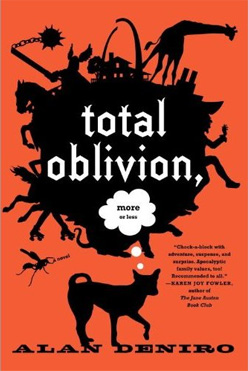A Few Scraps
I usually don’t blog on weekends, and I had a nice, long weekend. Just some random notes to get things started…
+Rabid Transit #3 and #4 are now up on Project Pulp. Check out their other sundry wares; it has one of the most interesting arrays of small press magazines and books available anywhere.
+I have no clue whether this is of interest to anyone else, but in this review of Zizek’s The Fragile Absolute (a flawed but wild book…but I guess that’s the case with any book that tries to synthesize Lacan, Marx, and Jesus, using Hitchcock’s Vertigo as one of your core texts), Malcolm Bull brings up some compelling parallels between Lacan and my guy Plotinus; in particular, the idea of the mirror and the mirror state (inner and outer):
Migration, too, presupposes a capacity to see yourself somewhere else, and the capacity to see yourself depends on the surface in which you are looking. According to Plotinus, it was because they saw themselves reflected in the world that immortal souls first migrated to the realm of matter. The idea had its origin in the myth of Dionysus Zagreus. To distract his attention the Titans offered the infant Dionysus a mirror and some other childish baubles, and then, while he was admiring his own reflected image, captured him and tore him to pieces. The reborn Dionysus meted out the same treatment to his own victims, but it was not this aspect of the story that interested the Neoplatonists. For them, the mirror of Dionysus was the material world itself. Proclus suggested that when Plato stated that the surface of the world was created smooth, he meant that it had a reflective surface like a mirror, and Plotinus had something similar in mind when he claimed that it was when the souls saw their images in ‘the mirror of Dionysus’ that they descended from unity into material multiplicity.
The myth has obvious resonances with what Lacan described as the mirror stage. Lacan interprets the human infant’s capacity to recognise itself in a mirror as simultaneously a revelatory moment of identification of and with the Ideal-I, and a devastating moment in which the discrepancy between the unified image of the reflection and the unco-ordinated body of the infant becomes apparent. Like the Neoplatonists, Lacan’s theory makes the experience of the mirrored image the precipitating event through which human subjectivities are formed, and emphasises that the mirror functions as a lure: captivation leads to capture. Just as Dionysus is torn apart, and Plotinus’ souls lose their immaterial unity, so the infant experiences itself as a fragmented multiplicity…
So…yeah.
+Finally, my (rather) short story The Centaur is now up at Spoiled Ink. Have a look see.





Do you read the Valve at all, Alan?
I think you introduced me to it, David, and I like it a lot.